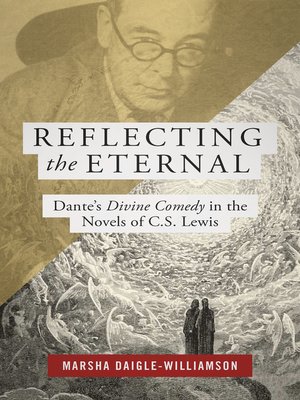Reflecting the Eternal
ebook ∣ Dante's Divine Comedy in the Novels of C. S. Lewis
By Marsha Daigle-Williamson

Sign up to save your library
With an OverDrive account, you can save your favorite libraries for at-a-glance information about availability. Find out more about OverDrive accounts.
Find this title in Libby, the library reading app by OverDrive.



Search for a digital library with this title
Title found at these libraries:
| Library Name | Distance |
|---|---|
| Loading... |
The characters, plots, and potent language of C. S. Lewis's novels reveal everywhere the modern writer' admiration for Dante's Divine Comedy. Throughout his career Lewis drew on the structure, themes, and narrative details of Dante's medieval epic to present his characters as spiritual pilgrims growing toward God.
Dante's portrayal of sin and sanctification, of human frailty and divine revelation, are evident in all of Lewis's best work. Readers will see how a modern author can make astonishingly creative use of a predecessor's material - in this case, the way Lewis imitated and adapted medieval ideas about spiritual life for the benefit of his modern audience.
Nine chapters cover all of Lewis's novels, from Pilgrim's Regress and his science-fiction to The Chronicles of Narnia and Till We Have Faces. Readers will gain new insight into the sources of Lewis's literary imagination that represented theological and spiritual principles in his clever, compelling, humorous, and thoroughly human stories.
Dante's portrayal of sin and sanctification, of human frailty and divine revelation, are evident in all of Lewis's best work. Readers will see how a modern author can make astonishingly creative use of a predecessor's material - in this case, the way Lewis imitated and adapted medieval ideas about spiritual life for the benefit of his modern audience.
Nine chapters cover all of Lewis's novels, from Pilgrim's Regress and his science-fiction to The Chronicles of Narnia and Till We Have Faces. Readers will gain new insight into the sources of Lewis's literary imagination that represented theological and spiritual principles in his clever, compelling, humorous, and thoroughly human stories.







